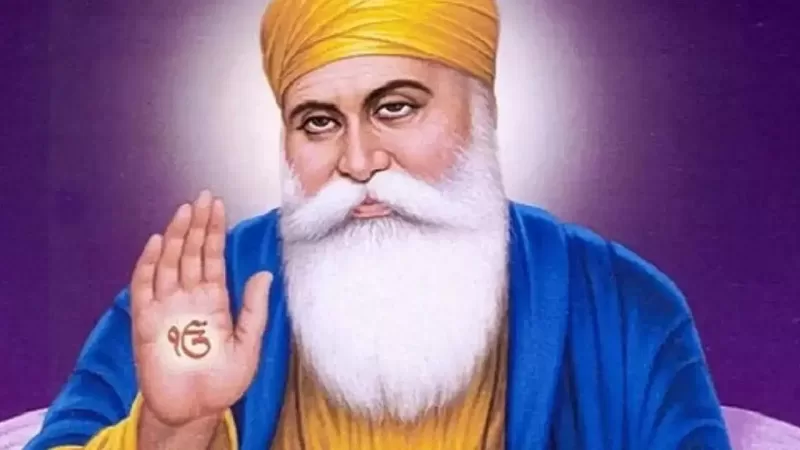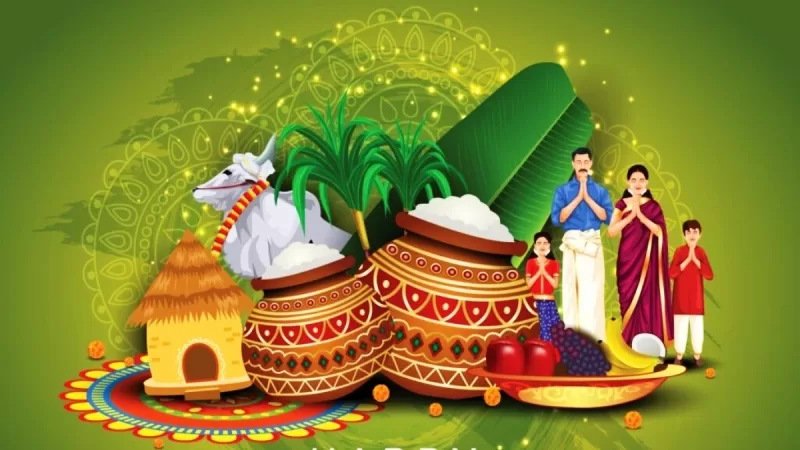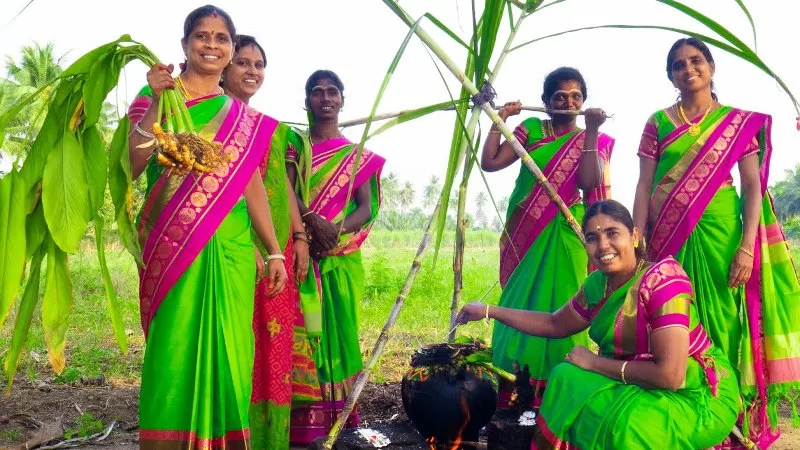
Guru Nanak Jayanti (Gurpurab) – A Celebration of Spirituality, Equality and Devotion
Guru Nanak Jayanti (Gurpurab) – A Celebration of Spirituality, Equality and Devotion
Guru Nanak Jayanti, also known as Gurpurab, is one of the most significant festivals in Sikhism. Celebrated with great devotion and fervor, it marks the birth of Guru Nanak Dev Ji, the first Sikh Guru and the founder of the Sikh religion. The festival honors Guru Nanak’s teachings, which emphasized spirituality, equality, and the oneness of humanity.
In this blog, we will delve deep into the history, significance, and celebration of Guru Nanak Jayanti, exploring its spiritual, cultural, and social impact.
1. The Life and Teachings of Guru Nanak
Guru Nanak Dev Ji was born on April 15, 1469, in Rai Bhoi Ki Talwandi (now known as Nankana Sahib in present-day Pakistan). From an early age, he exhibited an extraordinary sense of wisdom, spirituality, and a deep connection with the divine. His teachings were revolutionary for his time, challenging the rigid social structures and rituals that dominated society.
Guru Nanak’s Core Teachings:
Oneness of God: Guru Nanak propagated the idea of a formless, eternal, and all-pervading God, who is beyond human comprehension but is omnipresent.
Equality of All Humans: One of Guru Nanak’s most radical ideas was that all human beings are equal in the eyes of God. He rejected the caste system, untouchability, and gender discrimination.
Selfless Service (Seva): Guru Nanak emphasized the importance of selfless service and charity (Seva) to humanity. He believed that helping others is one of the highest forms of worship.
Living a Honest Life: Guru Nanak urged his followers to live an honest life, earn a living through honest means, and share their earnings with the less fortunate.
Naam Simran (Remembrance of God): Guru Nanak stressed the importance of meditation and remembrance of God’s name (Simran) as a way to connect with the divine.
2. The Significance of Guru Nanak Jayanti (Gurpurab)
Guru Nanak Jayanti is a sacred occasion for Sikhs worldwide, marking the birth anniversary of their revered Guru. The festival is celebrated in the month of Kartik (usually in October-November), according to the lunar calendar. The celebrations typically last for two days, with the first day dedicated to the Akhand Path, a continuous recitation of the Guru Granth Sahib (the central religious scripture of Sikhism), and the second day being Guru Nanak’s birth anniversary, known as Gurpurab.
Key Significance:
Spiritual Reflection: Gurpurab provides an opportunity for Sikhs to reflect on the teachings of Guru Nanak and recommit to leading a life based on truth, humility, and service.
Unity and Equality: Guru Nanak Jayanti is a reminder of the universal message of equality and brotherhood. People from all walks of life, regardless of caste, creed, or religion, come together to celebrate.
Renewed Devotion: For Sikhs, this day is an occasion to express love and gratitude to Guru Nanak, the spiritual guide who illuminated the path to divine truth.
3. How Guru Nanak Jayanti is Celebrated
Guru Nanak Jayanti is celebrated with devotion and religious fervor in Gurdwaras (Sikh temples) across the world, but the celebrations are especially grand in India and in countries with large Sikh communities, such as the United Kingdom, the United States, Canada, and Malaysia.
Key Rituals and Celebrations:
Akhand Path (Continuous Recitation of the Guru Granth Sahib):
The celebrations begin with the Akhand Path, a continuous, 48-hour recitation of the Guru Granth Sahib. This is an important spiritual event that signifies the Guru’s teachings and the divine word. Sikhs gather in Gurdwaras, where the recitation is done by a team of readers.
Nagar Kirtan (Procession of Devotion):
On the day of Gurpurab, a Nagar Kirtan (devotional procession) is held, which involves a community walk or parade with singing of hymns (Shabads) from the Guru Granth Sahib. The procession is led by the Panj Piaray (Five Beloved Ones), who are traditionally dressed in ceremonial Sikh attire.
The procession typically passes through local streets, with participants singing hymns, chanting prayers, and distributing Prashad (sacred food offerings) to people along the way.
Gurudwara Celebrations:
In the Gurdwaras, special Kirtan (devotional singing) and Katha (spiritual discourses) are held. Devotees gather to hear stories from Guru Nanak’s life and teachings, and there are often special Langars (community kitchens) where free meals are served to all, irrespective of their background or religion.
Fasting and Prayer:
Many Sikhs observe a day of fasting or devote their time to prayer and reflection on Guru Nanak’s teachings. Some may also visit Gurdwaras at dawn to participate in the early morning prayers (Amrit Vela).
Distributing Prashad and Langar:
One of the most important aspects of Gurpurab is the distribution of Langar—a free community meal. The concept of Langar was introduced by Guru Nanak to promote equality, as everyone, regardless of social status or background, could sit together and eat.
Lighting of Diyas (Oil Lamps):
Devotees light oil lamps (Diyas) in their homes and Gurdwaras to mark the occasion. The lighting of lamps symbolizes the victory of light (knowledge) over darkness (ignorance).
4. Guru Nanak’s Legacy
Guru Nanak’s teachings have transcended time and continue to inspire millions of people around the world. His message of unity, equality, love, and service resonates deeply, not just within Sikhism, but across different faiths and cultures. His teachings advocate for a life rooted in humility, truth, and selfless service to humanity.
The Guru Granth Sahib, the central scripture of Sikhism, carries the divine wisdom of Guru Nanak and his successors, guiding followers on how to live a righteous life. Sikhs believe that Guru Nanak’s spiritual wisdom is eternal, and his teachings remain as relevant today as they were centuries ago.
5. Why Guru Nanak Jayanti Matters
Guru Nanak Jayanti (Gurpurab) is not just a religious festival—it is a celebration of the universal values of peace, tolerance, and compassion that Guru Nanak championed. It serves as a reminder of the importance of living a life based on integrity, honesty, and equality. On this day, Sikhs worldwide renew their commitment to the ideals of Kirat Karni (working honestly), Naam Japna (remembering God’s name), and Vand Chakna (sharing with others).
In the fast-paced, materialistic world we live in today, Guru Nanak Jayanti offers a moment to pause, reflect, and reconnect with the deeper, more meaningful aspects of life. It encourages people to embrace love, respect diversity, and work towards the betterment of society as a whole.
Conclusion
Guru Nanak Jayanti is not only a day to celebrate the birth of a revered spiritual leader but also an opportunity to reflect on the values that Guru Nanak imparted. His message of unity, equality, and devotion continues to inspire millions across the globe. As we celebrate Gurpurab, let us remember the essence of Guru Nanak’s teachings and strive to live by them in our daily lives. Through acts of kindness, service, and humility, we can make the world a better place, just as Guru Nanak envisioned.










